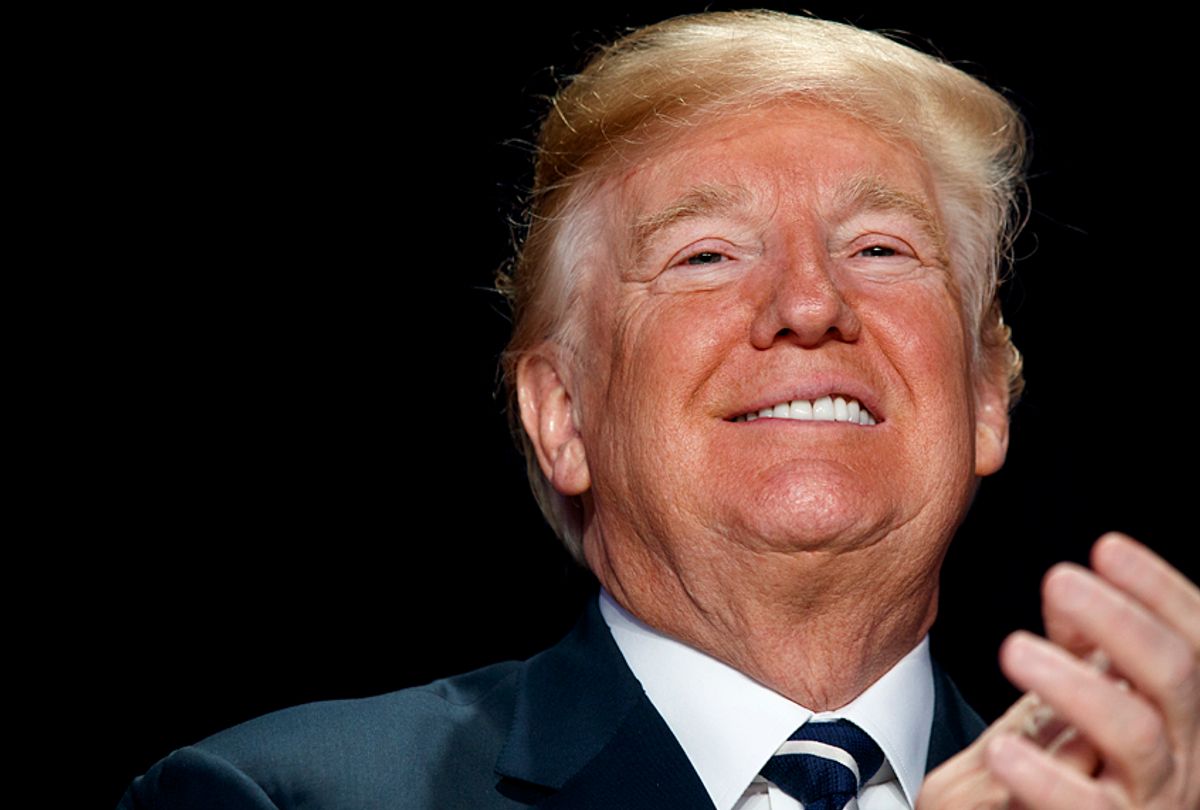
In addition to the three Syrian chemical facilities they attacked on Friday, Donald Trump’s missiles hit a target they didn’t aim at — the veneer of hypocrisy that allows the American governing class to justify itself as the global champion of the rule of law.
The missile attack was clearly a violation of international law, the Constitution of the United States and the fundamental precepts of justice.
The UN Charter
The UN Charter prohibits the unprovoked attack of any nation against another, except in the cases of self-defense or a UN authorized military operation. Neither applies in this case. The Assad regime in Syria is in no way a threat to either the United States, or its accomplice governments in the United Kingdom and France. Nor was the attack authorized by the UN.
The Trump Administration is fully aware that this attack was illegal. According to the Washington Post, Secretary of Defense Mattis suggested to a Congressional committee the day before the missiles were launched that a legal basis “could be framed as a self-defense strike” since Assad might, conceivably, attack the 2000 U.S. troops already occupying his country at some unspecified time in the future!
The missile assault was also a violation of the U.S. Constitution, which in no uncertain terms gives the Congress the sole right to declare war. Again, the only common-sense exception is a response to an imminent attack on the United States, which certainly was not present.
Finally, the missiles were launched before there was independent verification that the chemicals were dropped by the Assad government. French President Emmanuel Macron says he has proof. But Macron, because he has been so eager to ingratiate himself with Trump, is a biased source.
So, on the other side, is Assad’s ally Vladimir Putin,who claims that his investigators turned up no evidence of Assad’s guilt.
The OPCW
An independent group — the Organization for the Prohibition of Chemical Weapons — was on its way to investigate the site when the U.S. missiles struck. There was no apparent reason for Trump to launch them in such haste other than 1) his personal itch to show that he is tougher than Barack Obama and/or 2) a fear that an independent analysis would not justify the attack.
As Trump, Macron, and British Prime Minister Theresa May flout their contempt for the rule of law, the very institutions charged with protecting it are their accomplices. The UN Security Council refused to rebuke their violation of its own charter. And members of the U.S. Congress generally applauded the strikes — with most of the critics complaining that Trump had no plan to destroy Assad.
And while the mainstream media in the United States, Britain and France have been bemoaning the drift toward authoritarianism in other countries Europe and Asia, they seem oblivious to their own role as cheerleaders for the foreign adventurism that undercuts democracy in their own countries.
The excuse of course is that Assad is a “bad guy.” But so are dozens of leaders around the world, from Saudi Arabia to Central America to Southeast Asia who are protected by the U.S. military. Punishment that is inflicted only on one’s enemies and not on one’s cronies does not qualify as justice. It is a cynical cover for the arbitrary use of power that discredits efforts to build a peaceful world order.
So, who now is left to defend the international rule of law?



Shares